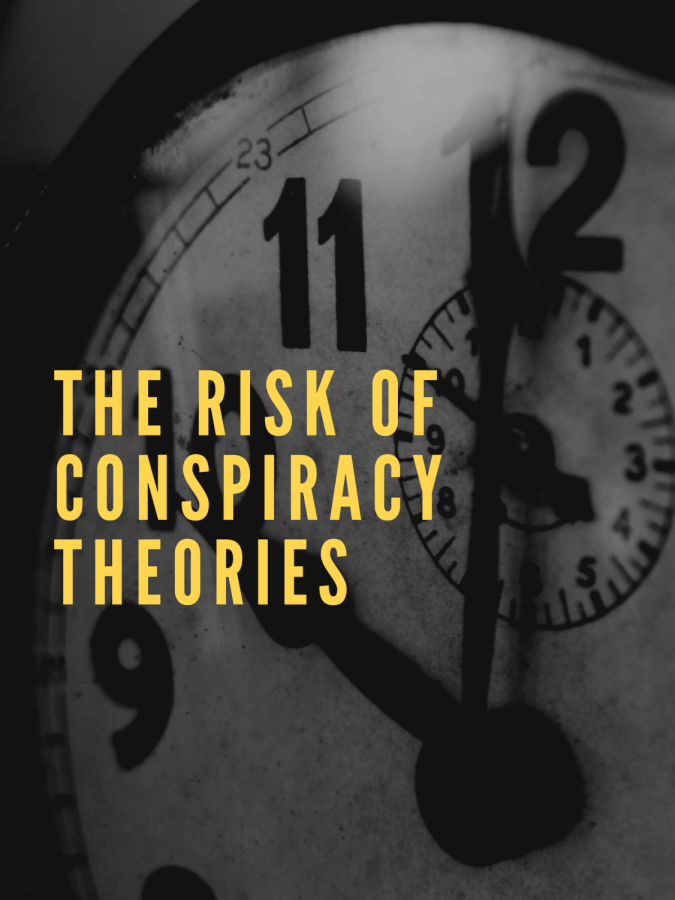The Risk of Conspiracy Theories
January 16, 2019
Over the past 20 years, conspiracy theories have become a staple in mass media. Theories such as, is the earth flat and is Obama a lizard have become a running joke in most households. However, as the popularity of conspiracy theories grow, so do the risks. The once juvenile fun brought by these fantasy beliefs has faded and has slowly become something much more dangerous.
As more of the population is exposed to conspiracy theories, psychologists beginning to worry about the lasting negative effects.
“Conspiracy theorists rarely simply endorse a single conspiracy theory,” Psychologist Sander van der Linden writes. “Rather, belief in one often serves as evidence for belief in others, and this quickly turns into a worldview. For example, studies have shown that people who believe in conspiracy theories often espouse mutually contradictory explanations about the same event, and are even eager to endorse entirely made-up conspiracy theories.”
There seems to be a major misconception that only crazed lunatics who wear tinfoil hats are the only conspiracy theorist out there, but that is not the case. Over 50 percent of Americans believe in conspiracy theories.
“The popularity of conspiracy theories is symptomatic of our alienated political culture,” journalist John Sides writes. “Conspiracy theories flourish when there is a vacuum of accepted political authority. When people don’t trust their political leaders or institutions, they feel naturally uneasy and then look to alternative explanations for unusual events.”
Today, conspiracy theories can easily be widespread thanks to technology. A person playfully searching theories can go from the relatively harmless flat earth theory to the dangerous blue whale theory, that revolves around a challenge that ends with suicide.
“Our research showed that conspiracy theorists were early adopters, in that they perceived the unique usefulness of the early (pre-social media) web for people who believed propositions that would never get past the editorial gatekeepers of mainstream media,” The “Guardian’s John Naughton writes. “Sites became key nodes in an infrastructure of conspiracist and far-right discussion that lay beneath the radar of polite society and mainstream media.”
Now that conspiracy theories are apart of everyday conversations, most people are susceptible to the risks.
“Misinformation spreads quickly and can do much more harm than you think,” Linden writes. “The next time someone tries to convince you of a popular conspiracy theory, beware of the conspiracy effect.”


